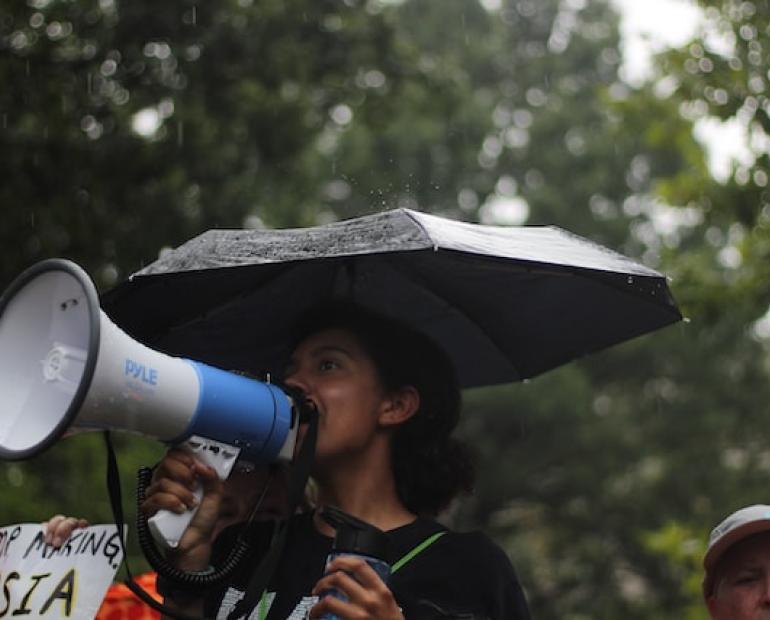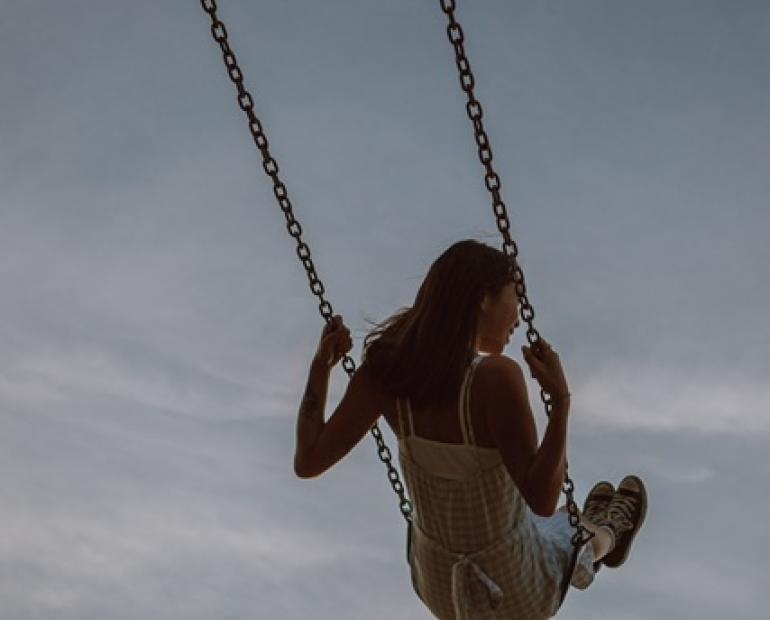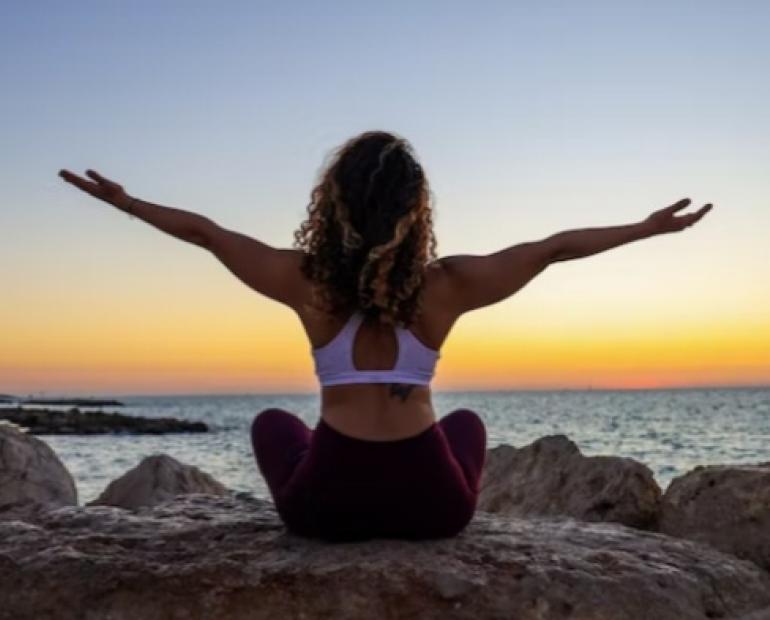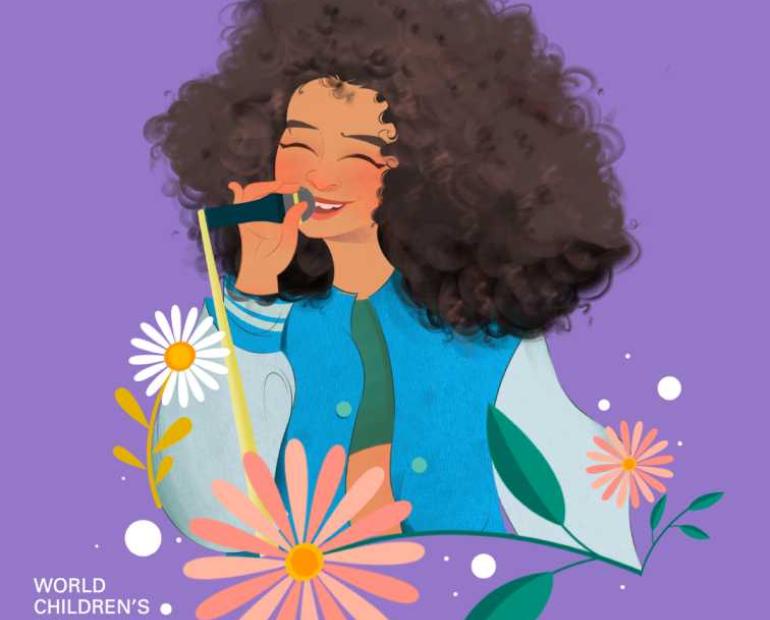
Olivina Maskan, also known as Peachy Liv, is 18-year-old activist and content-creator from Indonesia.
Her purpose in life is to contribute as much as possible in progressing the world’s quality of education and supporting social equality by utilizing the power of social media channels. Read her blog for World Children's Day and discover other young leaders advocating for children's rights here.
"What effect does constant depressing news cause for young people during the pandemic? I had never once questioned the notion that children should be the ones fighting for change until my 9-year-old brother said, 'It hurts me to be born in a chaotic world... I have to be a hero that defeats all the bad people and makes them cry!' As he broke down crying in front of me, my heart broke to know that children feel the burden of fixing issues we did not cause.
Young people could easily believe that the other guys must be entirely bad and wrong if we are the good guys. Is it good for us to grow up so sure of our righteousness that we forget how we, too, have flaws to reflect on and improve? Young activists should be confident but willing to listen empathetically and see wrong from right while acknowledging subjectivity. The good guy vs. bad guy paradigm is detrimental to conversation and negotiation with the opposite side, which we need most.
How do we know if a child is ready to be a change-maker? As children, we should wait until we develop the emotional capacity to understand nuance, gray areas, and why people could differ in opinion. That way, when we are speaking up, it is driven by our moral compass, open-mindedness, and values instead of rage.
How do we know if we have found those personal values? Finding what matters most to me came from the unpleasant experiences I faced in school, which shook me to the core and left a burning desire to stop the harmful cultures occurring in the education system. I asked myself, 'How do I reimagine the future of education? And what skills could I utilize in bringing that vision to reality?'
First, education should be free of cheating culture. So, I created a campaign called '#JujurItuKeren', which led 7,000 Indonesian students to advocate against this issue. Second, students should be taught learning skills and techniques. Through my YouTube account, Peachy Liv, I created hundreds of videos about social and educational issues that have impacted more than 54 million young viewers. Third, learning should be driven by curiosity instead of competition to get the highest grades. So, I published two educational books, You(th) and You(th) Academia, about how young people could use emotional intelligence and curiosity in developing personal strengths. Lastly, every child should be equipped with critical thinking skills. Therefore, I co-founded an organization called Arise Arose that has impacted 18,000 people.
After four years of working alone, I got more involved in UNICEF and U-Report's events, facing new opportunities and challenges. Have you ever felt nervous when people start calling you a young activist? That is how I felt when I first got appointed to be a U-Report Ambassador. The word "activist" was overwhelming because being surrounded by so many exceptional activists made me anxious about whether I could be as impressive as them. But I realized that driving change is not about competition to be the most outstanding; it is about collaboration. I reflected, 'What role do I have in the bigger fight of activism?' I am an ideator, creator, and leader. From then on, I focused on participating in the bigger picture by combining my skills with others to fight for a common cause.

Although driving change comes with challenges, those challenges lead us to discover new perspectives and connect with others through vulnerability. My most eventful experience as a U-Report Ambassador was when I became a project leader for a talk show and workshops about equipping youth with 21st-century skills to be lifelong learners. Working with others, I saw firsthand how heavy tasks and responsibilities led my team to burn out. I nearly experienced it myself. After having deep and honest talks with many young activists, I found that "activist burnout" is more severe and common than I thought.
When we are seen as activists by others and ourselves from a young age, it could be hard to separate our self-worth from the outcome of our work. It is essential to set boundaries between our self-concept and activism so we can show up and do our best without getting attached to things that are out of our control. I have learned that measuring my self-worth on whether or not I achieve a utopia based on my idealism is an unrealistic standard I set for myself. Instead, my goal is to live out my core values in my everyday life and community as best as possible. By focusing on and appreciating all our efforts, no matter how small, we create more sustainable progress. Child activists should not feel guilty for taking breaks and enjoying the process. Remember that our fight is a generational marathon, not a one-time race!"





